Hello Blanchetters!!
We have been blessed with a wave of new interviews for “The House with A Clock In Its Walls”. This time we have clips and an audio, also we have added “Nouveau” magazine scans and a new still from the time the cast attended “The One Show” to our gallery. Enjoy!



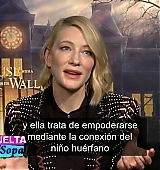


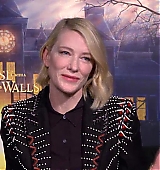
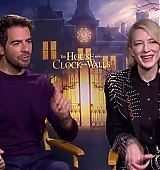
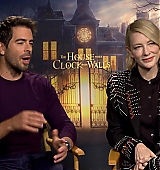
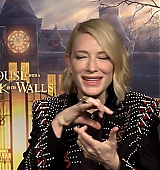


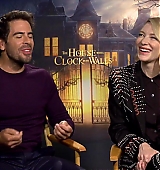
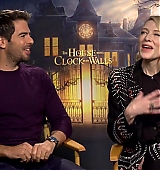
YAHOO MOVIES: Hey guys, how are you?
JACK BLACK: Good thanks.
CATE BLANCHETT: Good, how are you?
YM: Yeah, alright. I’m going to TIFF tomorrow so I’m a bit stressed out trying to organise things last minute. (EDITOR’S NOTE: This is interview took place before the Toronto Film Festival)
CB: Is it TIFF already?
JB: What is TIFF again?
CB: Toronto International Film Festival, that’s what they call it in the biz.
YM: Have you got any tips?
CB: No, just don’t go shopping. There’s not a lot to buy in Toronto fashion-wise.
JB: Oh yeah? I don’t know.
CB: It’s a long time since I’ve been there but it’s all pretty spread out.
JB: I feel like I’ve been there but I can’t remember why. It wasn’t really memorable but I do have fond memories of the city in general.
CB: You’ve shot there though?
JB: I remember hearing that one time Sean Penn and Nicolas Cage got in a fight at TIFF.
CB: A tiff at TIFF.
JB: Sean Penn accused Nicolas Cage of selling out and Nicolas Cage was like “oh yeah mother f**ker let’s take this to the streets.” It was a bloody fist fight that almost ended in a Sean Penn fatality. I might be exaggerating that last bit.
YM: I hope not, but we probably should talk about this movie.
JB: No, let’s talk about TIFF.
CB: Oh goodness what is that? (Cate finds the dictaphone between her and Jack on the sofa).
JB: Oh we put that there while you were talking to that guy.
CB: I thought it was yours and thought that is really strange. You record your own interviews.
JB: Just so I can prove that I never said this or that!
YM: Yeah you get that a lot with celebs saying their words were taken out of context so…
JB: Exactly, the lawsuits fly.
YM: So this film, it’s a children film that goes into rather dark subjects like loss and grief. Why do you think that’s a common theme in children’s films?
CB: It’s a huge fear of a child being abandoned. I know I felt it, I know my kids have felt it from time to time, it’s part of realising your own resilience. It’s imagining a future where you don’t have parents and then you end up with these parents! OK, how you going to navigate that?
YM: It’s rather lovely that it shows this blended family, that isn’t conventional.
CB: It’s not neat. The world is not neat.
YM: So your character, Cate. I got the impression she spent time at a concentration camp.
CB: Yes, there’s the tattoo. Both, Jonathan and Florence, their relationship to their magic and their ability, or stepping into their power, however, is a little bit complicated and broken because of their painful past. Hers is to do with losing her child and her husband in a camp, but obviously being a children’s film that’s just a kind of an aside that children might not even pick up or they might ask their parents, “what was that tattoo?”
YM: Is that a detail that appeared in the book?
CB: It’s there that they’ve been through the war, that they’ve been friends for a long time and that her family had, yeah, it’s alluded to and there are many many books so as the journey goes on you find out more about them.
YM: Jack, I read in an interview that you now only want to do movies with Cate.
CB: Did my agent tell you to say that?
JB: No, and I haven’t broached the subject with you but yeah I have told my agents that I am only doing Cate Blanchett films from now on.
YM: How come it’s taken so long?
JB: I know what kept us apart all these years? There is a conspiracy to keep us apart.
CB: Because they knew how dynamite it would be. It was other pairings.
JB: That’s right I think it was DiCaprio because he realised the power of our possible coupling.
CB: It was Clooney and Julia Roberts.
JB: Those two didn’t want us to ever.
CB: And they’re pretty powerful. (Laughs)
YM: I really loved your insults back and forth to each other in the film. Was there a point when you were improvising that it got pretty inappropriate?
CB: Oh any nasty words? I had so many on the tip of my tongue. Terrible.
JB: You should see the ones that ended up on the cutting room floor. Yeah, we got a whole different film.
CB: Eli let us put a few in.
YM: I only know Eli as a horror film director, and Inglourious Basterds, but love that he’s switched it up with this. How was it working with him?
JB: I’ve always had a lot of fun with his movies and yeah he’s not the obvious choice to do a family horror film for obvious reasons. He goes to very dark places that you wouldn’t let kids ever see but that was the excitement of this particular project because he had an opportunity to make this other kind of scary film.
I’ve found, personally in my career, that when you put the Governors on, when you put the limitations on and you say, “ok we’re never going to cross this line, we’re never going to show blood we’re never going to use any F-bombs,” that it forces a creativity, it raises the bar in other areas of your game and I was looking forward to seeing what Eli would do when he had to stay within the bounds of this film.
YM: Is there a calling card as a director that stands out for Eli, you know, a style of filmmaking?
CB: His knowledge of cinema is encyclopedic and I think he brings an actor’s sensibilities to things because he’s also been there, done that. He’s also really irreverent and meticulous. He’s this strange impossible storm or confluences of influences.
JB: He’s almost like a savant when it comes to his knowledge of cinema. He knows every single movie that has ever been made, from 1972 to 2012, he knows too many things. You’re like wait, this is not normal human memory but it’s pretty impressive the things that he can pull from, in reference to obscure films that you have definitely never seen.
CB: He’s also a 12-year-old. You know some people who have an impossible knowledge about a certain area or that they’re somehow exclusive about that knowledge or intimidating with it? He’s not like that at all.
JB: He did pull some cool references in the movie, like Amblin references. There’s a marquee on a movie theatre that we walk by early on, me and Owen. [It says] Space Man From Pluto and that’s a reference to another movie in Back to the Future (EDITOR’S NOTE: Spaceman from Pluto was an alternative title for Back to the Future suggested by a studio exec).
I think that there are a lot of little Easter eggs that are specifically the history of Amblin cinema. That’s what he wanted to capture in this movie too, some of that Amblin magic, that early Spielberg.
CB: That’s the spirit of Eli, he’s more delicious like that than exclusive.
YM: Speaking of Amblin, it’s actually been ten years since you starred in Indiana Jones, Cate.
CB: Is it? It must be because I was pregnant with Iggy when I made that film.
JB: I didn’t know you had some Amblin in your…
CB: Yeah, I did a baddie in The Kingdom of the Crystal Skull.
JB: Noice.
YM: Do you watch your old movies now?
CB: No, no, no, no. You get to the point where you can sit through a screening of them because you get slightly more immune to it but, (to Jack) do you sit there and think, “oh let’s watch Bernie again?”
JB: Never. No. I loved that experience but I don’t like watching myself very often.
YM: One of my favourite of yours is The Holiday and, of course, High Fidelity especially for Bruce Springsteen.
CB: Did you see him on Broadway? That was something.
JB: I don’t remember being invited to that and it feels like that is something I should have been invited to and been there.
CB: He extended it. It might still be on. You’re going, right? They’re sending you [to New York], you should get tickets.
JB: I should bop into High Fidelity? Wait, what are we talking about?
CB: No, Bruce Springsteen!
JB: Oh Bruce Springsteen? They’re not going to let me in that’s like 10,000 bucks a ticket. Did you see it? What’s it called?
CB: I did I took Dash, erm Bruce Springsteen?
JB: How did we get onto the Springsteen subject?
YM: Because I mentioned High Fidelity and he had that cameo.
JB: Oh right!
CB: It was amazing, yes. You could get tickets, just call CAA.
JB: You think it’s as simple as just pulling a few strings? I think that as we get closer to their final show it gets harder and harder.
CB: Jack Black, the only reason why you couldn’t get in is because he’d be threatened!
JB: I wanna see this show.
CB: He’s the most wonderful raconteur in the way that Michael Moore’s show was aggressively political in the way that he is, and it was fabulous and provocative but you’re talking to people who have paid $700 a ticket. Whereas Bruce’s show, he just gently talked about this tree…
JB: Literally 10,000 bucks a ticket here’s what Bruce is saying when he hears (Jack does a Bruce impression) ‘OK Blanchett? Yeah, yeah, oh absolutely, put her in my hot seats. Jack Black? Ahhh, it’s just tough but there’s just no seats left.’ That’s how that is going to go down. (Laughs)
YM: So before you guys go I wanted to ask you about the Oscars and this new popular film category as your film could technically be in the running.
JB: I don’t know what you’re talking about, there’s a new category? Popular? That’s absurd! That’s Teen Choice Awards!
CB: That’s what the People’s Choice Awards are for. There are so many awards show and ceremonies that kind of you know…
JB: There already is a most popular award and it’s whatever one makes the most money at the box office and wins. That trophy is unnecessary. You already got your prize. That was the billions of dollars that came through.
CB: Or is that best marketing award? I don’t get it, who is all this for?
YM: I think it was to try and get more viewers watching the show maybe?
JB: I tell you what there should be, I know this is going to sound like sour grapes but there should be a comedy category that’s all I’m going to say. Next subject.
CB: The thing is, I’ve never understood that you could have something like Funny Girl and that is funny and tragic, and the whole thing about saying a comedy is a less important genre. Or Ordinary People and Funny Girl, if they’ve both got merit. The whole thing about saying one picture is Best Picture. That’s the issue, isn’t it? The whole thing is flawed.
YM: So my final question is about representation for LGBT in Hollywood and what roles they are or aren’t getting. As someone who has played Bob Dylan, and a lesbian in Carol…
CB: I’ve also played a journalist, but I’m not a journalist. (To Jack) You’ve played a murderer, but I don’t think you’ve killed anyone.
JB: That we know of.
YM: I suppose the argument though is that there’s been n-number of opportunities for straight, cisgender actors and there aren’t enough opportunities for trans actors or people who are LGBT. What do you think about that whole situation?
CB: I think the central issue is one of inclusion and for a long time mainstream cinema has been dominated by a certain perspective, certain stories have been told, and certain stories have been kept either locked out or on the fringe.
The more diverse the types of stories we tell one another the more we diversify the storytelling. I think eventually time will make the hotness of people’s agendas calm down a little bit. I think everyone is jockeying for attention at the moment and I think that’s a natural part of change.
BBC Radio 6 – Click HERE
Remember Cate Blanchett played Veronica Guerin and her Irish accent was perfect?… Well. Time has not been kind… #TheHouseWithAClockInItsWalls pic.twitter.com/N0c33m6sbt
— Eoghan McDermott (@eoghanmcdermo) September 18, 2018
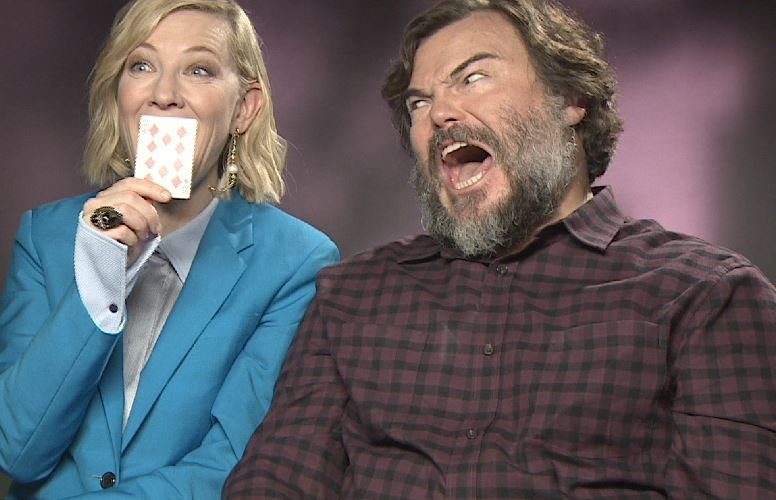



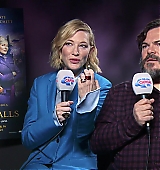
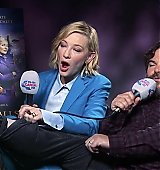
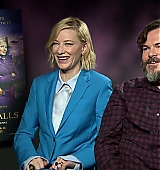
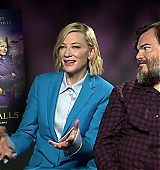
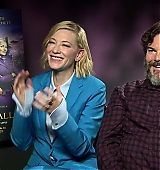

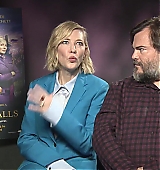
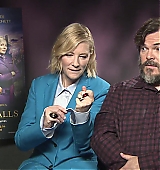
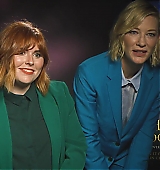
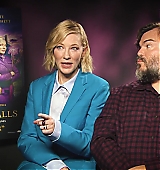
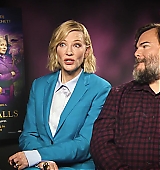

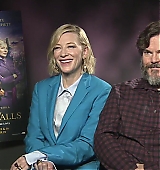
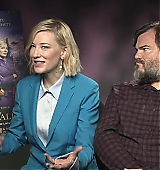


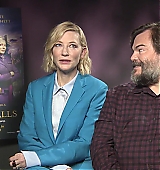
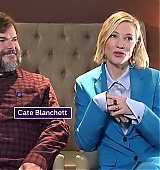
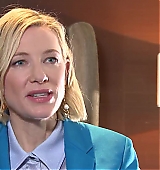
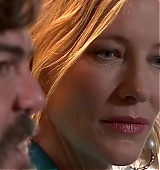
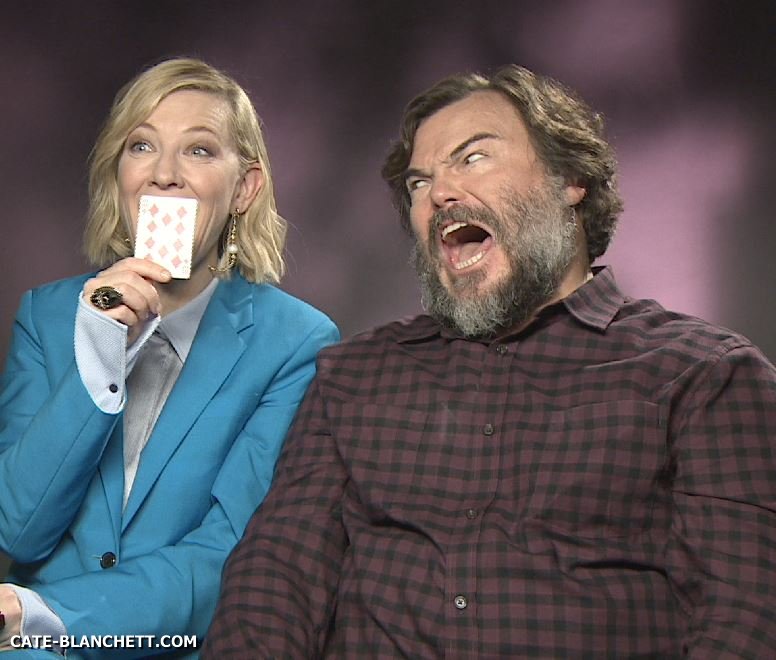
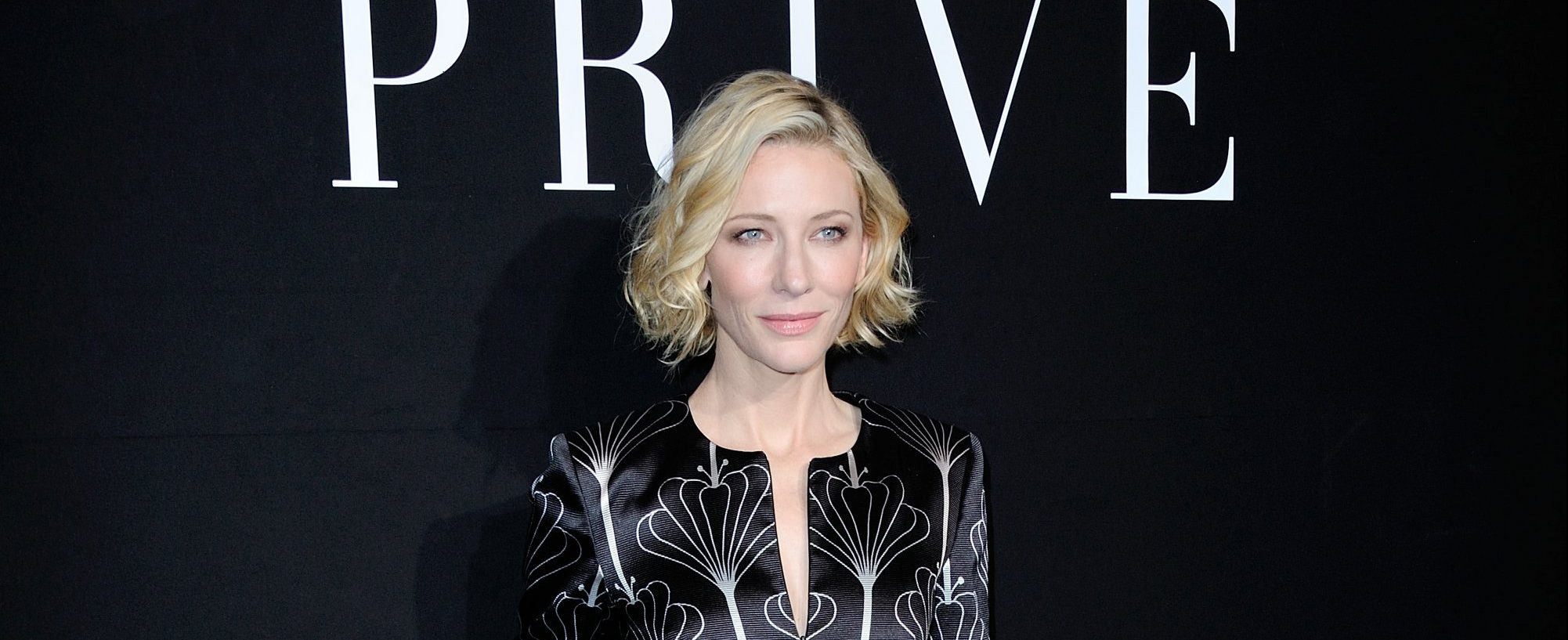
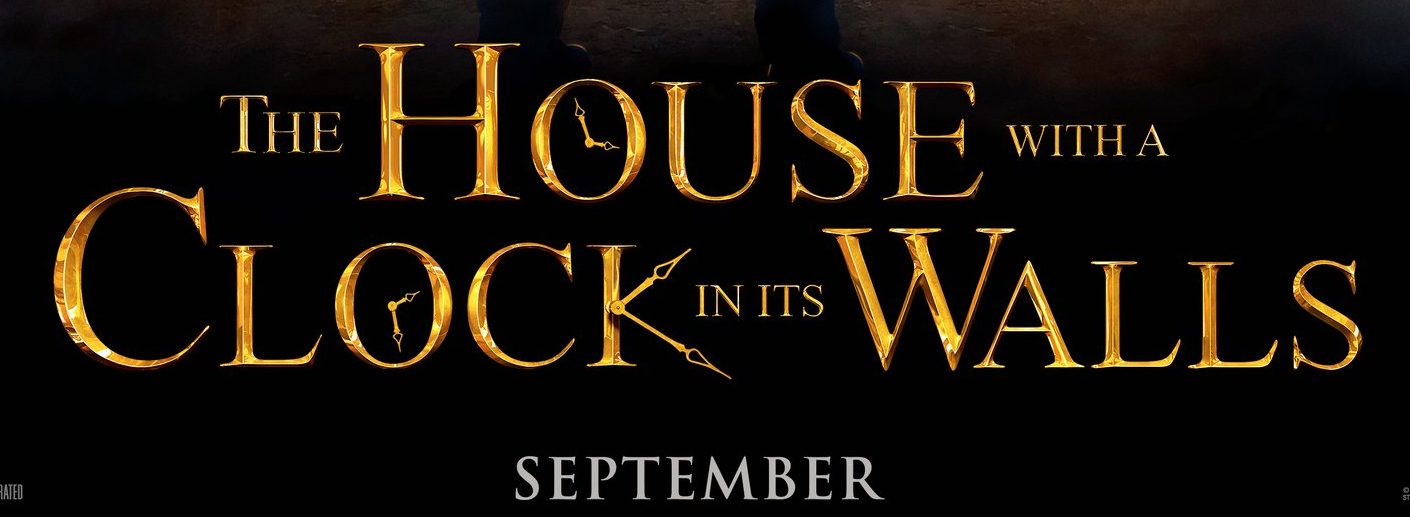

 A Manual for Cleaning Women (202?)
A Manual for Cleaning Women (202?) Father Mother Brother Sister (2025)
Father Mother Brother Sister (2025)  Black Bag (2025)
Black Bag (2025)  The Seagull (2025)
The Seagull (2025) Bozo Over Roses (2025)
Bozo Over Roses (2025) Disclaimer (2024)
Disclaimer (2024)  Rumours (2024)
Rumours (2024)  Borderlands (2024)
Borderlands (2024)  The New Boy (2023)
The New Boy (2023) 











